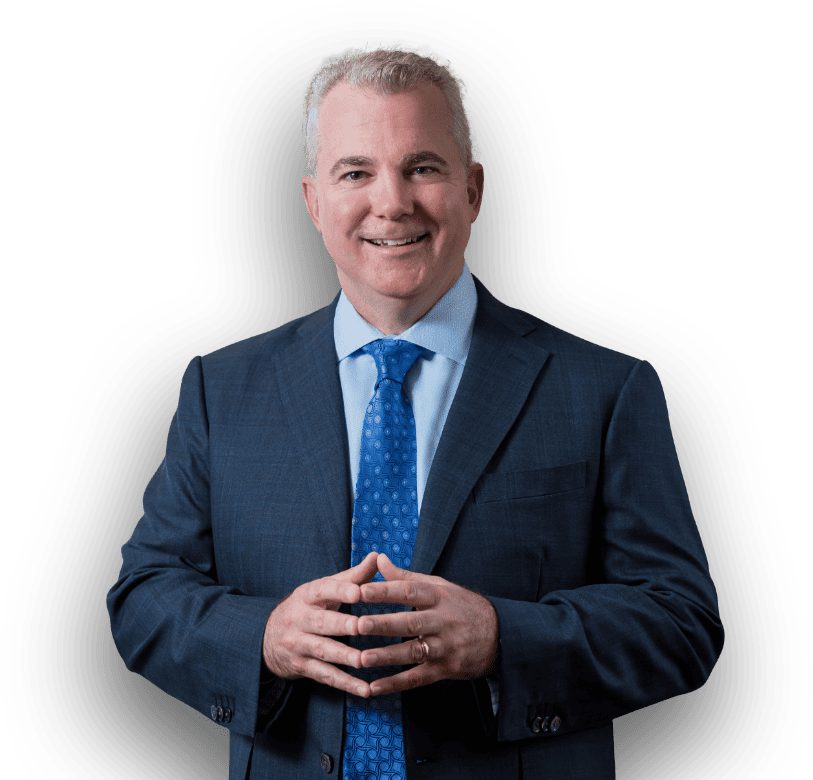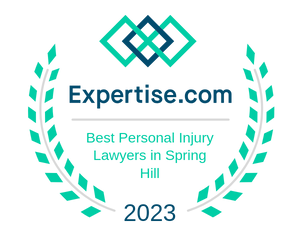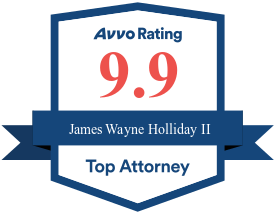Injuries Caused by Inadequate Maintenance in Florida
If someone suffers injuries on your property because you failed to maintain it, that injured person could bring a premises liability action against you. Property owners must keep their properties free of hazards. If they notice hazards, they must make the property safe, whether repairing or removing the hazard. This applies to single-family homes, condos, apartments, townhouses, and retail establishments.
If you suffered injuries on another’s property, whether a private residence, apartment complex, condo, or retail establishment, contact a
Florida premises liability attorney for a free case evaluation.
Florida Statutes About Premises Liability
Florida has several statutes regarding inadequate maintenance, including:
Landlord’s Obligation to Maintain Property
Landlords have several rules they have to abide by, including health codes, housing codes, and building codes. Florida Statutes §83.51 also states that where no codes exist, such as in unincorporated areas, the landlord must maintain the premises to keep it safe, including keeping up with the maintenance of walls, porches, doors, steps, floors, foundations, roofs, and windows.
School Boards
Florida Statutes §1001.42(d) states that school boards must keep schools maintained to keep children from being injured. They must also provide supervision for construction and additions.
Condominium Associations
According to Florida Statutes §718.111, condo associations must maintain the property, including maintenance, repair, reconstruction, or replacement of common areas.
How a Florida Premises Liability Lawyer Can Help?
Premises liability cases, including inadequate maintenance cases, are often difficult cases.
A Florida premises liability attorney can help you recover the compensation you deserve by:
- Investigating the accident, including questioning witnesses and gathering documents to help prove your case.
- Helping you find the specialists you need for your specific injuries.
- Obtaining medical records.
- Negotiating with the insurance company on your behalf.
- Prepping for litigation if the insurance company refuses to come to a fair and reasonable settlement.
Working With Insurance Companies
When it’s time to negotiate a fair and reasonable settlement, a premises liability lawyer can take that stress off your shoulders so you can concentrate on recovering. Insurance companies are in business to make a profit. Every dime they pay out is less money in their pockets. They will fight tooth and nail to deny a claim or to offer a pittance. That is stress that you don’t need in your life right now.
Insurance company tricks include:
- Twisting what you say to use it against you, so they can deny a claim or pay a pittance that might not even cover your medical expenses, never mind other losses
- Agreeing with you that their client is at fault and telling you that a lowball amount is the most they can pay. This is rarely true.
- Putting you off long enough so that your claim is no longer valid. Florida has a statute of limitations limiting how long you can file a lawsuit. If the insurance company can delay the case long enough, you can no longer file a lawsuit by law.
- “Encouraging” you to settle quickly, “so you have money for your medical expenses.” They hope you don’t find out that your case is worth much more than they offer
- Discouraging you from working with a premises liability attorney
- Denying a claim without reasonably investigating the facts
- Refusing to pay a valid claim
- Failing to notify you of deadlines
Insurance companies are almost always devious in that they will do anything to deny a claim or pay a pittance. Retaining a premises liability lawyer reduces the risk of tricks and almost always increases the chances of getting a fair and reasonable settlement.
If the insurance company still refuses a fair and reasonable settlement, your attorney already has much of the information required to take your case to court. If you have to file litigation, you won’t have to start over if you retain an attorney to help with settlement negotiations.
Dangerous Conditions
Inadequate maintenance not only applies to buildings, but it also applies to maintenance. If a vehicle owner causes an accident because he did not maintain his vehicle, he could face a civil lawsuit for damages, just as a property owner could.
Dangerous conditions include:
- Cracked sidewalks
- Inappropriately stacked merchandise
- Unrepaired fixtures, such as sinks, toilets, tubs, and showers.
- Broken or loose balcony barriers and handrails.
- Broken locks
- Spills on floors
- Poorly lit parking lots at retail establishments, condos, and apartments
- Overgrown vegetation
- Poorly repaired or maintained equipment, including vehicles
- Failing to repair machines, tools, and other equipment
- Failure to inspect truck equipment
- Broken or weak steps, porches, and decks
- Poorly maintained building foundations and other structural components
Examples of Poor Maintenance
Poor maintenance can cause
personal injuries in many situations, including:
Premises Liability
Public and private property owners owe those on the site, whether invited or not, a duty of care to be free from injuries caused by hazards. Various reasons the person is on the property have different levels of duty of care.
If the property is a retail establishment or another establishment that provides a financial benefit to the owner, including retail establishments, the duty of care is the highest.
Property owners of private properties who invite social guests have the next highest duty of care. While they don’t have to inspect the property like a retail establishment constantly, they must keep the property safe and warn their guests of risks.
But: What if someone trespasses on your property? Property owners owe trespassers a duty of care much lower than retail establishments and people who invite guests to their private property. The only duty of care a property owner owes to a trespasser is not intended to harm the trespasser.
Children are an exception to the trespassing rule, especially when you have something that attracts a child, such as a pool, cave, old appliances, and other items a child might want to explore. The rule for children exists because children do not know any better. Thus, the property owner must fence in pools and lock the gate.
Commercial Vehicle Accidents
Commercial vehicles see a ton of daily use, and thus, they require more maintenance than passenger vehicles. If the business owner doesn’t maintain the vehicles, they could cause a wreck. For example, not checking and replacing the brakes or tires on a truck could cause a tire blowout or the vehicle to continue traveling although the driver is standing on the brakes.
Overgrown Vegetation
When property owners don’t keep grass, bushes, and trees trimmed and in good condition, they could block drivers’ views; trees could fall on people, vehicles, and buildings, grow into sidewalks, causing cracks, or cause any other number of accidents.
Elevators and Escalators
If a building owner doesn’t comply with proper use guidelines for escalators and elevators or doesn’t maintain them, they could malfunction and injure people. Business owners and insurance companies often try to blame the user, stating the user was engaging in horseplay or was drunk.
However, poor maintenance injures more people than companies will admit. Even if a building owner tries to blame you for your injuries, contact an inadequate maintenance lawyer regarding your claim.
Inadequate Maintenance Cause Injuries
Inadequate maintenance causes many kinds of injuries, including secondary injuries.
Your injuries and their severity depend on the accident, but may include:
- Bumps, bruises, cuts, scratches, scrapes, and punctures
- Strains and sprains
- Pulled and torn muscles and other soft tissue injuries
- Face and eye injuries
- Traumatic brain injuries
- Head, neck, and shoulder injuries
- Ear injuries, including deafness
- Internal injuries
- Chemical or thermal burns
- Back and spinal cord injuries
- Amputation of a digit or limb
- Crushed bones and crush injuries
You could also sustain secondary injuries, such as infections in open wounds. Whether the infection is in a wound sustained in the accident or a surgical wound created to repair an accident injury, the at-fault person or entity is responsible for damages related to the infection or other secondary injury.
Additionally, the at-fault person or entity bears responsibility for your medical expenses and other damages if accident injuries exacerbate illnesses or injuries.
Recovering Damages After Injuries Caused by Inadequate Maintenance
Florida allows you to recover two types of damages: Compensatory and punitive.
Compensatory Damages
After suffering injuries or losing a loved one to an accident caused by inadequate maintenance, you could recover compensatory damages in the form of economic damages and non-economic damages. The courts order both types of damages to make you whole again. However, while most people recover economic damages, only some recover non-economic damages.
Economic Damages
Sometimes referred to as special damages, economic damages have a monetary value.
Most people recover economic damages, including:
- Medical expenses, including doctors’ appointments, surgeries, follow-up appointments, ambulatory aids, prescriptions, and prescribed over-the-counter medications and equipment
- Home health care, nursing home expenses, or rehabilitative home expenses
- Accessibility equipment for your vehicle, including but not limited to wheelchair ramps and lifts and hand controls
- Accessibility equipment for your home, including but not limited to wheelchair ramps, widened doorways, handrails, and grab bars
- Replacement or repair of personal property in certain types of inadequate maintenance cases, such as car accidents. You could recover compensation to fix or replace your vehicle and anything of value inside the vehicle.
- Lost income and loss of future earning capacity
- Death-related expenses, including but not limited to burial expenses, funeral expenses, cremation expenses, certain probate court fees, and probate attorney’s fees and costs
Non-Economic Damages
Sometimes referred to as general damages, non-economic damages do not have a monetary value. In most cases, you must lose a loved one or sustain injuries that cause long-term or permanent disabilities to recover non-economic damages.
While most insurance companies have their definition of long-term or permanent disabilities, the Social Security Administration defines them as disabilities that cause death or last longer than 12 months.
Non-economic damages include:
- Pain and suffering, including emotional distress
- Loss of quality of life if you have to make life-long changes such as taking prescriptions or using ambulatory aids
- Loss of companionship if you can no longer enjoy time with your family or attend family activities and events
- Loss of consortium if you can no longer enjoy a physical relationship with your spouse
- Loss of use of a body part, such as a hand or a foot
- Loss of use of a bodily function, such as your hearing or eyesight
- Inconvenience if you have to hire someone to do the chores you usually do, including but not limited to house cleaning, grocery shopping, lawn maintenance, and home repair and maintenance
- Amputation of a digit or limb
- Excessive scarring or disfigurement
Punitive Damages
The court orders a defendant to pay punitive damages to punish specific behavior that caused the accident.
Florida has specific rules to recover punitive damages:
- You must prove that the defendant’s actions or inactions were grossly negligent or intentional.
- The court must order compensatory damages.
- The court may also determine whether the defendant can pay punitive damages.
Contact a Premises Liability Lawyer for Injuries Sustained Due to Inadequate Maintenance
People and businesses that do not adequately maintain their property or equipment could cause accidents that cause injuries. In some cases, these accidents could cause catastrophic injuries or death, significantly changing your life or the lives of your loved ones.
While money doesn’t wipe out your injuries, make you recover from catastrophic injuries, or bring back a loved one, it significantly reduces the financial stress you incur because another person’s or entity’s negligence caused your injuries and other losses.
If you suffered injuries because a business owner, homeowner, apartment building owner, or condo owner did not properly maintain the property, contact a
Florida personal injury law firm’s lawyer at (352) 597-0009 for your free case evaluation.
Schedule a Free Initial Consultation Today!
James Wayne Holliday
James Wayne Holliday has been practicing law since 1995. He has been named as a “Best Attorney” Lifetime Charter Member in Florida, an honor awarded to less than one percent of the nation’s lawyers.
Mr. Holliday has earned a reputation as a relentless trial lawyer because of his outstanding work ethic and thorough preparation of his cases for trial.
Author's Bio









